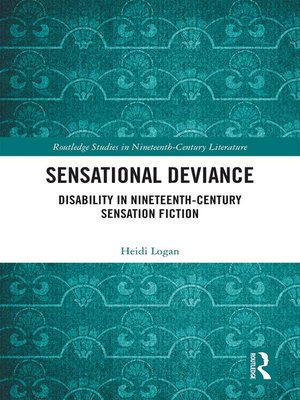Sensational Deviance
ebook ∣ Disability in Nineteenth-Century Sensation Fiction · Routledge Studies in Nineteenth Century Literature
By Heidi Logan

Sign up to save your library
With an OverDrive account, you can save your favorite libraries for at-a-glance information about availability. Find out more about OverDrive accounts.
Find this title in Libby, the library reading app by OverDrive.



Search for a digital library with this title
Title found at these libraries:
| Library Name | Distance |
|---|---|
| Loading... |
Sensational Deviance: Disability in Nineteenth-Century Sensation Fiction investigates the representation of disability in fictional works by the leading Victorian sensation novelists Wilkie Collins and Mary Elizabeth Braddon, exploring how disability acts as a major element in the shaping of the sensation novel genre and how various sensation novels respond to traditional viewpoints of disability and to new developments in physiological and psychiatric knowledge. The depictions of disabled characters in sensation fiction frequently deviate strongly from typical depictions of disability in mainstream Victorian literature, undermining its stigmatized positioning as tragic deficit, severe limitation, or pathology.
Close readings of nine individual novels situate their investigations of physical, sensory, and cognitive disabilities against the period's disability discourses and interest in senses, perception, stimuli, the nervous system, and the hereditability of impairments. The importance of moral insanity and degeneration theory within sensation fiction connect the genre with criminal anthropology, suggesting the genre's further significance in the light of the later emergence of eugenics, psychoanalysis, and genetics.







